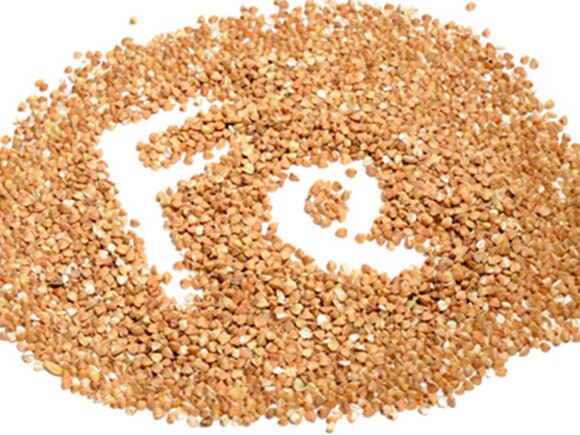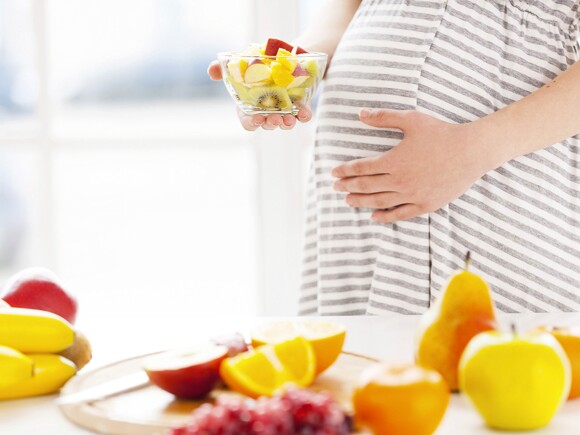All nutrients are considered important for brain development in the growing child, but some appear to have a more pronounced effect on the developing brain circuits in the womb and during the early months after birth. This critical period, the first 1000 days of life which starts at conception and ends by the second birthday, is an exceptional window of opportunity that sets the foundations of optimal growth and most importantly, brain development across the lifespan. Thus, supporting brain growth with key nutrients at this early sensitive period can positively affect brain development.
Nutrients such as protein, polyunsaturated fatty acids, phospholipids, iron, zinc, copper, iodine, choline, folate and vitamins A, B6, and B12 are particularly critical. Polyunsaturated fatty acids and phospholipids are essential in the myelination of the brain connections (which allow the nerve impulses to move more quickly).
Did you know that by eradicating three certain nutrient deficiencies in the world, man’s average IQ will increase by 10 points? These three nutrients are iron, zinc, and iodine.
Food to eat for baby's brain development
Below is a practical food guide during pregnancy to boost baby’s brain development:
- Eat at least three servings of iron-rich foods, which are not only limited to lean meats and liver but also includes local vegetables such as malunggay, kamote tops, gabi leaves, kangkong, and saluyot to ensure you are getting 27 mg of iron daily.
- Choose a variety of dairy products such as milk, cheese, yogurt as well as seafood (ie. Shrimp and salmon) to ensure adequate intake of iodine (220 mcg/day)
- Good sources of folate are dark green leafy vegetables and legumes (lima beans, black beans, black-eyed peas and chickpeas). Folate prevents a major congenital malformation of the brain (neural tube defects like spina bifida).
- Ensure to eat at least one source of vitamin A every other day. Carrots, squash, sweet potatoes, mangoes, and cantaloupe are excellent sources of vitamin A.
- Foods and oils with higher amounts of polyunsaturated fatty acids and phospholipids include selected fish/seafood (examples salmon, sardines, anchovies and shrimp), oils (soybean oil, sunflower, grapeseed, and safflower) and nuts such as walnuts.
- Avoid fish with high levels of mercury (as this would be detrimental to a growing brain), such as shark, swordfish, white snapper, tuna, and king mackerel.
- Eat eggs and dairy products for your daily vitamin B12 requirement.
- Vitamin B6 can be found in variety of food such as tofu, chicken, fish, beef, avocadoes and potatoes.
Eating a variety of food during pregnancy is the key to getting all these essential nutrients which ensure baby’s optimal brain development.
Reference
- The First 1000 Days of Life: The Brain’s Window of opportunity. https://www.unicef-irc.org/article/958-the-first-1000-days-of-life-the-…
- https://www.cdc.gov/pregnancy/during.html
- Eating Right When Pregnant. WebMD. https://www.webmd.com/baby/guide/eating-right-when-pregnant#1
- https://www.nichd.nih.gov/health/topics/preconceptioncare/conditioninfo…
About The Expert
LOUDELLA V. CALOTES-CASTILLO, Child Neurologist
Dr. Louddie is active in both academe and clinical practice. She believes in work/life integration and is unceasingly learning and re-learning the amazing brain from her four little rascals and her extended children (her patients).
She completed her Pediatric Residency and Fellowship in Pediatric Neurology at the University of the Philippines - Philippine General Hospital. She took further specialty training in Neuromuscular diseases in children at the Royal Children’s Hospital Melbourne Australia and completed a Summer School of Myology at the Institut de Myologie, Pitie-Salpetriere, Paris France.
She is currently a Clinical Associate Professor and an attending physician of the Division of Pediatric Neurology, University of the Philippines – Philippine General Hospital. She is also a guest faculty of the Ateneo School of Medicine and Public Health where she teaches both basic and clinical neurosciences. She has served as a Board of Trustee of the Child Neurology Society of the Philippines from 2017-2018.
Dr. Louddie is affiliated with various hospitals such as The Medical City, St. Luke’s Medical Center - Global City, ManilaMed, and National Children’s Hospital. In MedMom – Institute of Human Development, as their child neurology consultant, she collaborates with other medical specialists and allied health professionals in the care of children with special needs. She has empowered the Muscular Dystrophy Association of the Philippines (MDAP) as they launched the First Muscular Dystrophy Run in the Philippines.
The views and opinions expressed by the writer are his/her own, and do not state or reflect those of Wyeth Nutrition and its principals.





























